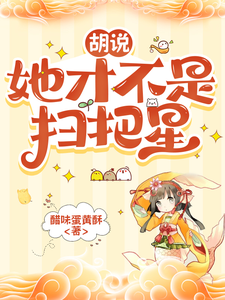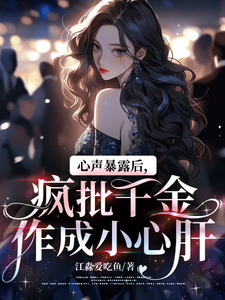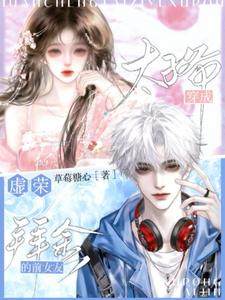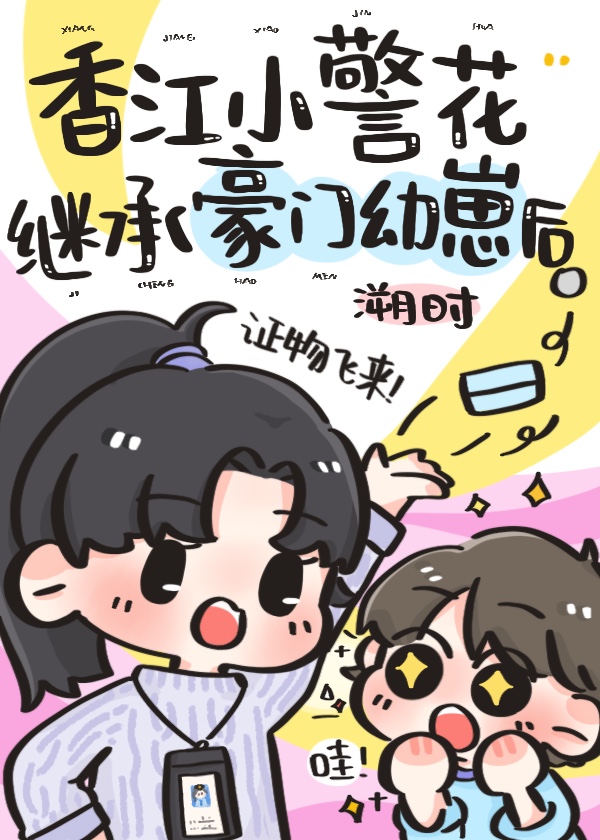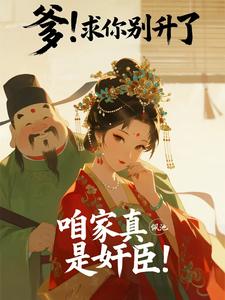Autumn was always a busy season, with most households occupied with winter preparations.
Gu Tusu, along with other men and children from the neighborhood, had been knocking on Shen Miao’s door at dawn these past few days, taking her three children out to the mountains beyond the outer city to "gather autumn"—collecting pine needles, pinecones, and wild chestnuts.
Liu Douhua carried a bamboo basket in one hand while dragging Sister Xiang—who had a small sickle tucked at her waist and a burlap sack in tow—with the other. She couldn’t stop showing off the new silk flower she’d bought for her hair. Sister Xiang shot her a sidelong glance and ruined the moment with a snide remark: "Don’t cry when tree branches snag it later on the mountain."
The sharp-tongued retort left Liu Douhua fuming. She stomped off in a huff. Seizing the opportunity, Li Gou'er sidled up and stealthily pulled a handful of roasted beans from his sleeve, slipping them to Sister Xiang, Ji Brother, and Chen Chuan while whispering, "My mother didn’t roast many—just for us."
But the sharp-eyed Zeng Family Boy spotted them, a trail of snot running down his face as he rushed over to snatch some. The group of children instantly scattered like a flock of startled birds.
Thus, the autumn-gathering party set off noisily toward the outer city, the older ones leading the younger in a boisterous procession.
As the weather turned colder, the price of charcoal and firewood in the shops outside immediately doubled, and it was expected to rise even further. The men in the alley, including Gu Tusu, had been hauling firewood from the mountains beyond the outer city almost daily to save their families some money, each of them growing gaunt and sunburnt from the labor.
Shen Miao’s household, which ran a shop selling grilled fish and roast duck, had stockpiled a roomful of firewood and charcoal blocks during the summer, estimating they’d have enough for winter. But since her business consumed large quantities, she’d recently bought two more cartloads for insurance—though by then, prices had already surged, costing her two strings of cash for just those two carts.
With winter’s arrival, everything became more expensive, driving costs skyward. Eateries and taverns across the city had begun raising their prices, and Shen Miao also considered a modest increase—at least enough to cover the firewood expenses. Take, for example, the bathhouses, which were the most fuel-intensive. As soon as autumn arrived, they hiked their prices by ten coppers. Even Shen Miao and her large household could barely afford baths now.
Thankfully, the cold meant fewer baths were needed. A basin of hot water for a quick wipe-down was considered the height of "fussy cleanliness" among the poor. The Zeng family in the alley didn’t wash their hair or bathe all winter, waiting instead until the spring Lunar New Year to visit the bathhouse for a thorough scrub.
It wasn’t that they were lazy or dirty—rumor had it that Grandpa Zeng once caught a chill after bathing in winter, struggled for over a month, and then passed away. Since then, neither adults nor children in his family dared bathe during the cold season.
Back then, a simple winter cold could easily claim lives.
As the air grew colder and drier, Shen Miao gradually reduced her own bathing frequency. Still, she insisted on washing herself with a separate basin of water and demanded that Sister Xiang and Tao not slack off either. Girls weren’t like boys—they had to be especially careful about keeping their bodies clean. After all, the entire capital had only one "Miss Zhang’s Clinic" specializing in women’s ailments, and she was almost always summoned by noble households, leaving common folk with little chance to see her.
Women had always struggled to receive proper medical care, and even minor ailments often went untreated. So, they had to take care of themselves.
Every ten days or so, they’d visit the bathhouse for a proper wash. The bathhouses of the Great Song dynasty had separate pools for men and women—large, open spaces without partitions, where people of all ages bared themselves without reservation.
After a good soak in the bath, Shen Miao had the bathhouse attendant scrub her thoroughly, turning her over like a pancake to ensure every inch was cleaned. Once done, the attendant slathered her with lard ointment. Shen Miao often dragged Sister Xiang and Tao along for these sessions, and each time, they emerged dazed and glowing, their faces shiny and their steps light as if floating. The effects lasted for days.
The bathhouse attendant particularly enjoyed scrubbing Sister Xiang, claiming that grimy little children were the most satisfying to clean, as layers of dirt would come right off.
Aside from stockpiling firewood and charcoal, Shen Miao also began hoarding rice, wheat flour, pork, chicken, and easily stored vegetables like Chinese cabbage, radishes, yams, and taro. Though the expenses piled up like flowing water, once heavy snow fell and the canal froze over, many goods would become impossible to buy. Stocking up was a necessity.
By now, the cellar had turned into a natural freezer, nearly filled to the brim.
In ancient times, surviving winter was no easy feat for common folk, even in the wealthiest corners of Bianjing. The inner city fared better—rarely did one see people collapsing from cold or hunger on the streets—but in the outer city, where the poor huddled in makeshift shelters by the water gates, few elderly survived the season.
These days, more and more families resorted to selling their children for food.
The short-statured broker, huddled in his shop, slurped down a hearty bowl of zhajiang noodles, accompanied by steaming lamb soup and a side of pig’s head meat tossed with cucumber. He barely looked up from his meal.
He had just returned from a trip to purchase laborers and, in secret, brought Tao a message from her mother. This time, he had gone to Daming Prefecture and returned with a group of children—so many that even he couldn’t help shaking his head in dismay. "Times are hard out there," he muttered. "The human market thrives most in winter."
Tao clutched the small silver hairpin her mother had saved up for her and retreated to the backyard to cry. The broker said Tao’s mother had been fretting over her constantly. Upon hearing that Tao had found a good household in Bianjing, she was overjoyed. She hurriedly retrieved the hairpin—wrapped in layers of red cloth and hidden at the bottom of a chest—and entrusted the broker to deliver it to Tao.
With guilt in her voice, Tao’s mother mentioned how other girls, upon turning fifteen, would have grand coming-of-age ceremonies with feasts and guests.
But poor Tao—on the very year she should have celebrated, her own mother had sold her.
Still, she had scraped together enough money to commission a silver hairpin for Tao, its tip adorned with two plump, round little peaches. Along with the pin came a hesitant, tearful message: "Tell her to live well and not worry about me. She mustn’t come back."
Once the broker relayed the words and finished his meal, he left without delay.
Shen Miao saw him off and turned to comfort Tao in the backyard. Though her heart ached, at least there was news from Tao’s mother. She resolved to ask the broker when he’d next visit Daming Prefecture, so she could send a message in return and keep the connection alive.
But Tao proved stronger than expected. By the time Shen Miao stepped into the backyard, Tao had already dried her tears and returned to her duties, greeting customers as if nothing had happened.
Shen Miao glanced up, her gaze landing on Tao’s hair, and smiled in relief.
There, nestled in her dark bun, was the peach-adorned silver pin—a fine piece of craftsmanship that gleamed softly in the light.
Beyond food and firewood, Shen Miao also took the whole household to the cotton shop to buy dozens of pounds of fresh cotton, which they used to stuff winter coats and stitch quilts.
Tang Er and Fu Xing waved their hands, insisting they didn’t need new cotton—cheaper, secondhand stuffing would do just fine.
Shen Miao would never do something as stingy as skimping on her workers' welfare. She bought cotton and fabric, planning to make two thick, sturdy cotton-padded jackets for each person to last through winter—a project she and Tao estimated would take over half a month. Shen Miao even considered designing the "Lei Feng hat" ahead of schedule, a style that would be durable and warm for the cold months.
This would be her first winter in ancient times, and she couldn’t help feeling a little nervous. Often, she found herself grateful that she had worked tirelessly from dawn till dusk when she first arrived in Bianjing, setting up stalls to earn money. Though exhausting, those efforts had quickly allowed her to accumulate initial funds. And thanks to befriending the Xie family, securing several large orders and collaborations, her fortunes had steadily grown like a snowball.
Otherwise, she might not have been able to live so comfortably now.
From stockpiling food and firewood to the smallest daily routines like bathing, every household was going all out to prepare for a safe winter.
The Shen family’s small courtyard was no exception. With the first frost settling in, everyone at home sprang into action.
Shen Miao took a knife and split the Chinese cabbage in half, then quartered each half. She made slightly angled cuts at the base to help the cabbage absorb flavors better. After chopping, she placed the cabbage in a large basin, sprinkled salt over it, and poured in enough water to submerge the leaves, leaving them to soak for at least two hours until they turned soft and wilted.
While the cabbage soaked, Tang Er and Fu Xing busied themselves inside, cleaning the chimney flues and building the kang (heated brick beds). In Bianjing, houses were constructed with built-in flues connected to the kitchen stove—a standard feature left by carpenters and masons. During spring and summer, these flues were blocked to prevent smoke from filling the rooms.
Now, before the snow fell, they had to move and dismantle the beds, setting up a framework for the kang with earthen bricks and stones. They then laid more bricks over the frame to form the bed’s surface, carefully sealing every gap with mud to ensure no heat escaped. Once connected to the kitchen stove, the kang would dry within half a day, saving a great deal of firewood for winter heating.
Tang Er, originally from Liaodong, was skilled at building kangs—his surfaces were smooth and level. By noon, he and Fu Xing had already finished two rooms. After lunch, they continued, though with six rooms in total, the work would take two or three days.
Meanwhile, Tao sat with a large bamboo tray, sorting duck feathers. She first picked out the larger feathers, then carefully plucked the smaller down, pinching the quills gently and pulling them free before tucking the delicate fluff into a double-layered cloth bag to keep it from scattering in the wind.
As the cold set in, sleeping under two thick quilts had become necessary, though their weight made it hard to breathe. Shen Miao decided to unpick some of the cotton padding, replacing part of it with duck down. But down had a tendency to escape and clump, so she had to sandwich it between layers of cotton and stitch the quilt tightly with crisscrossed threads.
The household had saved over a dozen bags of duck feathers, periodically sun-dried to remove any odor—now they’d finally be put to good use.
Next, Shen Miao prepared a spicy pepper paste, crushing garlic and ginger before mixing them with sugar, glutinous rice paste, and shrimp sauce. The seasoning for pickling the cabbage was now ready. Glancing at the saltwater-soaked cabbage, she saw it still needed more time, so she joined Tao in sorting feathers. After hours of work, they’d only filled two bags, leaving them bleary-eyed and sore-shouldered.
If they kept at it much longer, they’d end up cross-eyed!
Now she finally understood why down jackets were so expensive. Even with machines in later times, the amount of down that could be picked from duck feathers was truly scarce. She calculated—from one pound of white duck feathers, at most, six taels of white down could be extracted. The feathers of mallard ducks were even less productive, yielding only four taels of gray down!
Her eyes and hands ached from the tedious work, so she quickly called for a break, urging Tao to stand up and stretch as well. "Rest for a while," she said, "don’t strain your eyes."
After a short pause, Tao sat back down and resumed picking. Shen Miao told her not to rush, but Tao tightened the bag filled with down and grabbed another, continuing to sort through the feathers one by one. "Ji Brother’s autumn break only lasts until tomorrow, and then the academy reopens," she said. "I want to prepare a quilt and a padded jacket for him to take along. Life at the academy isn’t as comfortable as at home."
Yes, time passed so quickly—Ji Brother was about to start school again.
Shen Miao was momentarily stunned by her words and couldn’t help reaching out to pinch Tao’s cheek. "You’re a far more devoted elder sister than I am."
Tao looked up and smiled, instinctively touching the shiny new silver hairpin in her hair. "Originally, I had no siblings—only my mother treated me well. But now, staying with you, everyone is so kind to me. I have no way to repay it except to do my best for your family."
Only then did Shen Miao realize she had been too busy to keep track of the days. She stood and went to check the "Kitchen God Calendar" hanging on the wall. In those times, folk calendars were crudely printed on straw paper, with few words—mostly illustrations of the Kitchen God, the Spring Ox, and diagrams of the Heavenly Stems and Earthly Branches, along with the twenty-four solar terms, so even illiterate people could track important farming seasons. At a glance, she saw not only that Ji Brother’s school was reopening, but also that Ninth Brother was about to take his academy examinations!
The exam date was the seventh—wasn’t that tomorrow?
But lately, Ninth Brother had been absent, busy with who-knows-what. Shen Miao felt a pang of regret. She had specially made osmanthus cakes, symbolizing success in the exams, and bought several large pig trotters, already stewing on the stove. She planned to prepare braised trotters and pork jelly for him—a playful nod to the phrase "hoof of fame," a homophone for "top of the list" in imperial exams.
As if summoned by her thoughts, just as evening fell and Shen Miao was sealing a crock of spicy pickled cabbage, Yan Shu came bounding in excitedly. He carried two baskets brimming with red persimmons. "Lady Shen, I brought you persimmons from the spring estate! Qilin and I picked them together!"
In his haste, persimmons tumbled out, rolling across the floor. He scrambled to pick them up, and Shen Miao hurried to help. "Slow down! What’s the rush? You’ll trip!"
"I’ve been at the spring estate these past days, and I just couldn’t stomach Chef Fang’s cooking anymore," Yan Shu said, his eyes watering with longing for Shen family meals. "Lady Shen, look—haven’t I lost weight?"
Shen Miao glanced back at him while gathering persimmons. Yan Shu’s round, chubby face, with his big eyes and flat nose, still had a gap where two front teeth were missing—ah, he must have lost them recently.
No wonder his speech had sounded a bit airy earlier.
As for weight loss… if anything, he seemed to have gained a little. The flesh on his cheeks jiggled as he ran.
Yan Shu, still scooping up persimmons, craned his neck to look for Sister Xiang.
"Sister Xiang went to the mountains to gather pinecones. She’ll be back soon," Shen Miao said, waving him off. "Go inside and play with Zhuifeng and Lei Ting. And keep an eye on Zhuifeng—don’t let him lick the chickens’ behinds!"
"Aye! Understood!"
Shen Miao watched him go off to play, then noticed another persimmon had rolled near the threshold. She hurried over, reaching out just as a section of water-blue bamboo-patterned silk sleeve brushed past her. A slender, pale hand had already picked it up for her. The sleeve swayed, carrying a faint scent of cool snow pine, followed by Ninth Brother’s ever-gentle voice: "Let me."
Shen Miao straightened up and looked up at him.
Xie Qi seemed to have arrived on horseback, still wearing a moon-white cloak with a hood trimmed by an inch of soft white fox fur. The fluffy fringe made his features appear even gentler and more refined.
He held the reins in his hand, and behind him, a large horse’s head peeked out—a tall chestnut steed with big, dewy eyes gazing curiously at Shen Miao.
Xie Qi handed the persimmon to Shen Miao before turning to tie up the horse.
Shen Miao and the horse stared at each other for a moment. Fascinated, she asked, "Ninth Brother, what kind of horse is this? It’s so tall—is it one of those Liao horses the horse traders always talk about?"
"Its sire was a Liao horse, its dam a Tartar steed."
Shen Miao’s eyes sparkled as she admired the magnificent creature. Xie Qi must have taken great care of it—its mane was glossy and smooth, its lashes long, and its hooves neatly trimmed.
Xie Qi added warmly, "Red Steed is a mare, very gentle. You can pet her, Miss Shen. She never kicks."
Shen Miao stood on her tiptoes and reached up to stroke the horse’s head. To her delight, the mare even lowered her head slightly to accommodate her touch.
It was so tall—a full head taller than her. Since arriving in Bianjing, Shen Miao had never seen such a beautiful horse. Neither the horses of other households nor the ones the Xie family usually used for pulling carriages could compare. Those horses probably wouldn’t even reach its neck.
In the Great Song Dynasty, the finest Liao horses were the equivalent of Rolls-Royces, Tartar steeds were like Ferraris, while the local breeds ranked closer to BMWs. The big blue oxen were Audis, and donkeys? Well, they were probably just Volkswagens.
Once she bought land and got the duck farm running, Shen Miao planned to invest in a couple of "Dezhou donkey Volkswagens" to transport the ducks—more practical that way.
She gave Red Steed another pat and asked Tang Er to fetch some soaked black beans to feed the horse. The beans had originally been set aside for grinding into black bean and peanut milk tomorrow, but now they’d have to be sacrificed for this gorgeous Rolls-Royce of a horse.
"Ninth Brother, come inside—it’s cold out. Oh, I made some osmanthus rice cakes for you, to wish you success in the imperial exams! Aren’t you entering the examination hall tomorrow morning? If I recall, it starts at Chen hour? Tonight, we’ll stew some pig trotters for you—for good luck."
"Thank you for remembering. There’s really no need to go to such trouble." Xie Qi didn’t dare hope too much, given the uncertainties this year, but his eyes softened all the same.
Suddenly, a paw prodded at his chest. Xie Qi seemed to remember something and, like a magician, produced a plump, solid calico cat from a hidden pocket in his cloak. "Miss Shen, there’s been some commotion at home, and with the exams coming up, I came today to entrust Qilin to your care."
Shen Miao gasped. "This is Qilin?"
How had it gotten so fat?!
At first glance, she’d almost failed to recognize it.
Xie Qi scratched the cat’s head as they walked inside, listing off its habits: "Yes, Qilin still loves goat’s milk. Three meals a day—sometimes minced fish with shredded chicken, sometimes quail mixed with rabbit liver. It also eats duck breast, and when it catches field mice, Chef Fang dries the meat into jerky for it to gnaw on as a snack."
Shen Miao: "..."
She glanced at Zhuifeng, who was stealthily opening his mouth wide toward a chicken's rear end behind Yan Shu's back, then at Lei Ting gnawing on a large bone with leftover vegetables mixed into noodles, before finally settling her gaze on the plump, glossy-faced cat nestled in Xie Qi's arms.
Well, the fake heiress had been sent back to her impoverished family!
When Qilin was brought into the Shen household, Xie Qi had just set him down when the cat immediately darted under the platform to hide. Curious, Zhuifeng poked his head in to investigate, only to be hissed at by a bristling Qilin, who sounded like an angry rattlesnake.
Xie Qi’s face instantly showed paternal concern. Shen Miao, having experience with cats, urged him to sit down first and try a piece of fragrant osmanthus rice cake. "Don’t force him out. Let him get familiar with the place. When he feels safe, he’ll come out on his own."
The osmanthus rice cake was made by soaking glutinous rice and regular rice in a three-to-one ratio, grinding them into a fine slurry, then mixing in sugar and a bit of yeast. After letting it rise to double its size, filled with honeycomb-like air pockets, dried osmanthus flowers harvested from their courtyard in early autumn were sprinkled on top before steaming.
After steaming for half an hour, lifting the lid released a sudden burst of osmanthus fragrance.
Xie Qi had ridden from the Spring Manor, enduring a journey of cold wind. When Shen Miao handed him a triangular slice of warm osmanthus rice cake, the comfort reached his heart even before the aroma did.
He wasn’t usually fond of sweets, but this cake, rich with osmanthus flavor, was soft, subtly sweet, and free of any off-tastes—its delicate texture unexpectedly suited his palate.
This wasn’t a novelty; Chef Fang had made it before, and bakeries sold it too. Yet, for some reason, he’d never appreciated it until now.
"It’s delicious," Xie Qi said, his eyes curving as warmth spread through his wind-chilled limbs. After finishing the whole piece without feeling cloyed, he asked curiously, "It’s lighter than the ones sold outside. How did you make it, Miss Shen?"
Pleased by his enjoyment, Shen Miao smiled. "It’s nothing special. I just used one less spoonful of sugar so the rice’s fragrance wouldn’t be overpowered. Bakeries add more sugar to make the sweetness stronger, but cooking isn’t about rigid rules—knowing what to keep and what to omit is an art. Sometimes, less is more."
Xie Qi nodded absently. Yes, cooking required balance, just like his family’s affairs. Their past greed had allowed subordinates to deceive and exploit the people.
Fortunately, it might not be too late to change.
Unaware of Xie Qi’s wandering thoughts, Shen Miao called out to Yan Shu and Youyu to join them for cake.
The two had been standing like sentinels at the kitchen door, eyeing the pot of braised pork trotters exuding rich meaty aromas. Reluctantly, they tore themselves away to enjoy the osmanthus cake.
The braised trotters still simmered gently on the stove.
To prepare them, they were blanched first, then stir-fried with spices until the skin turned golden for maximum crispness. A splash of wine, soy sauce, and a spoonful of sugar followed, coating the trotters evenly before adding enough hot water to submerge them. After boiling, the heat was lowered to a slow simmer for over an hour until the meat turned tender and the sauce thickened. A final pinch of salt perfected the dish.
By nightfall, the pot of braised pork trotters was finally ready.
Shen Miao picked the largest piece with tendons and first served it to Xie Qi, who needed auspicious success in his imperial exams. Xie Qi stared at the enormous pork trotter in his bowl, initially unsure where to start, but the aroma was irresistible.
Setting aside his reservations, he picked it up and took a bite. The skin was tender yet springy, yielding with a satisfying "squish," rich in gelatinous texture. The meat inside had been stewed to melt-in-the-mouth tenderness, dissolving after just a few chews, while the robust braised flavors instantly bloomed across his palate. Shen Miao’s cooking never relied on overpowering spices; instead, it accentuated the pork’s natural richness. After finishing one piece, Xie Qi couldn’t resist reaching for another.
Even though he’d grown accustomed to Shen Miao’s culinary skills, he still found himself craving more.
Sister Xiang and the other rambunctious children returned after a day of play, hauling back a large sack of pine needles and cones, along with a pile of prickly chestnuts. They arrived just in time to join the pork trotter feast.
By now, Sister Xiang and Yan Shu had devoured their portions so messily that their faces were smeared like little kittens, even licking their fingers clean!
After dinner, Xie Qi and Yan Shu took their leave. That night, Shen Miao prepared pork trotter jelly, planning to serve it the next morning with a garlic dipping sauce over congee—a surefire delight.
The next day, as it was the imperial examination date, the streets were bustling before dawn with families seeing off their candidates. Yan Shu alone escorted Xie Qi to the exam hall, then skipped back to the Shen household for another meal instead of returning to the Xie residence.
Shen Miao, noticing his solitary return, asked in surprise, "Yan Shu, why did you send Ninth Brother off alone? This is..." too careless, isn’t it?
This was the imperial exams, after all!
Yan Shu scooped up a mouthful of steaming, sticky millet congee, pairing it with a glistening, trembling slice of pork trotter jelly that melted instantly on his tongue with a "slurp." After swallowing, he sighed helplessly, "Madam and the master said that, following past trends, Ninth Brother might return today anyway, so they didn’t bother coming."
Shen Miao: "..."
Poor Ninth Brother—his family had given up hope out of sheer misfortune.
Even Yan Shu, after breakfast, suddenly became responsible. He packed a bag of medicinal supplies and hurried back to wait outside the exam hall, fearing Ninth Brother might emerge early due to some mishap. To his surprise, after a whole day braving the wind outside, Ninth Brother hadn’t appeared!
Overjoyed, he dashed back to the Shen household to share the news, then sprinted to the Xie residence to hitch a carriage and deliver the update to their spring estate.
Ninth Brother had survived the first day! Yan Shu even glanced at the sun to confirm—yes, it still rose from the east. His excitement grew.
Could it be... that the Xie family’s ancestral graves had caught fire?
Shen Miao was equally thrilled. It seemed the pre-exam pork trotter had worked! For others, passing the exams was the achievement, but for Ninth Brother, merely lasting a single day counted as breaking his streak of bad luck!
While Yan Shu rushed toward the spring estate, a modest carriage bearing the Xie family lantern slowly approached Donghua Gate on Imperial Street.
Father Xie, clad in his cyan-green ninth-rank official robes, clutched a thick memorial in his hands, a bamboo ceremonial tablet tucked into his belt. Drenched in nervous sweat, he turned to Lady Xi, who’d come to bolster his courage, and asked, "My dear, will this truly work? My legs feel like jelly—I’m so terrified I can barely stand."
Lady Xi was accustomed to this and soothingly patted the back of his hand: "Husband, don’t be afraid. Ninth Brother is right—no pain, no gain. Observing the winds and assessing the situation is the best approach. Submit a memorial impeaching yourself for lax household management, kneel and confess your guilt, beg His Majesty to punish you severely, then remove your official cap and resign. His Majesty will surely remember your loyalty and the Xie family’s devotion."
Father Xie finally mustered a sliver of courage, clenched his fist, and nodded solemnly: "Well said, my wife. For the sake of our family’s safety, this petty official position can be discarded! After all, it’s just a ninth-rank post—I’ve muddled through half my life with it, and that’s enough!"
But when the carriage arrived outside the palace gates, Father Xie lifted the curtain, gazed at the Donghua Gate looming before him, took a deep breath—then another—and glanced back at Lady Xi, still frozen in place.
Exasperated, Lady Xi kicked him out: "Go! If you wait any longer, it’ll be dark. Do you want to take ten lashes before knocking on the palace gates?"
With a face like a bitter melon, Father Xie shuffled step by reluctant step toward the palace entrance, hesitantly presenting his bamboo audience tablet to request an audience with the emperor.
**
As it was the day of the imperial examinations, Shen Miao’s shop was unusually bustling. Noodle soup sold like flowing water, the lamb broth sold out by noon, and soon after, customers were ordering grilled fish in broad daylight.
Everyone in Shen Miao’s shop was run ragged until dusk, when the autumn sun dipped behind the mountains and the last customers finally left. Only then did they collapse onto the wooden benches to rest.
As night fell, a chill crept in. The streets outside grew sparse, no longer as lively as in summer. Just as Shen Miao was about to head back to stitch a cotton-padded jacket in her spare time, Old Mr. Liang appeared again.
This time, he wasn’t wearing plain, fine cloth.
Instead, he donned a black gauze hat with stiff wings, its edges trimmed in gold thread. His deep green official robe was embroidered with cloud patterns, its wide sleeves shimmering with silver threads—his entire bearing now a far cry from his previous visits.
Behind him stood an unadorned but spacious high carriage, flanked by four young blue-robed eunuchs holding lanterns.
The moment Liang Qian appeared in this attire—marking him as a high-ranking palace eunuch—passersby in the cold wind hurriedly stepped aside.
Fu Xing and Tang Er were so startled they toppled off their stools.
Liang Qian stepped over the threshold and clasped his hands politely: "Madam Shen, circumstances have changed. The guest has arrived ahead of schedule. I must trouble you to accompany this servant swiftly to the Jade Spring Garden to prepare the evening banquet."
Shen Miao’s eyes nearly popped out of her head.
Wait—hold on—how does this old man have two completely different faces?!
Weren’t you supposed to be a wealthy resident near the Imperial Street? How did it turn into the Jade Spring Garden? And this Jade Spring Garden… isn’t that… isn’t that the royal garden?!

